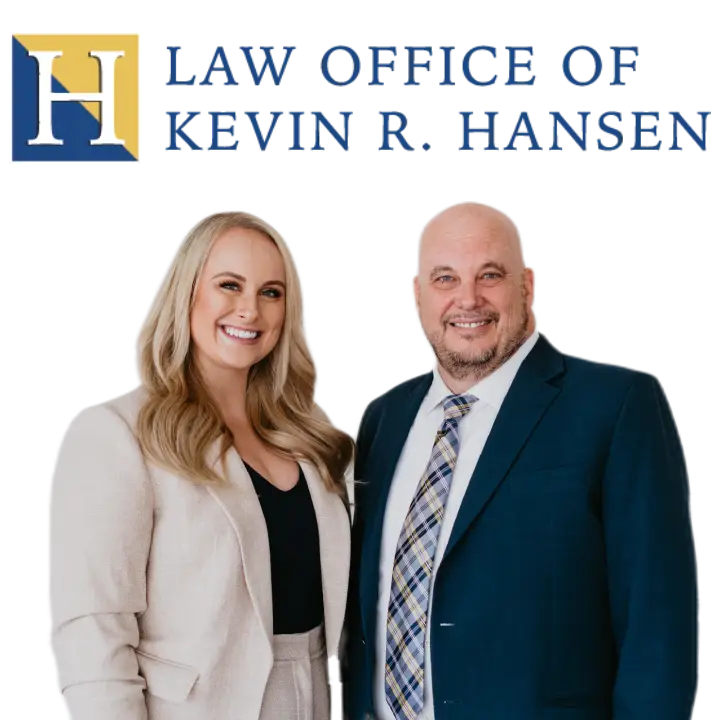Negligence Defined
NRS 41.130 states: Liability for personal injury. Except as otherwise provided in NRS 41.745, whenever any person shall suffer personal injury by wrongful act, neglect or default of another, the person causing the injury is liable to the person injured for damages; and where the person causing the injury is employed by another person or corporation responsible for the conduct of the person causing the injury, that other person or corporation so responsible is liable to the person injured for damages.

Table of Contents
Explaining Nevada Negligence Law
Negligence in Nevada law is determined when an individual fails to act as a reasonably prudent person would under similar circumstances, causing harm or damage to another. This doctrine, based on responsibility and reasonable foresight, expects people and entities to exercise care, caution, and avoid foreseeable harm to others.
The concept of negligence plays a vital role in both civil and criminal law scenarios in Nevada. It serves as the backbone of many personal injury and accident cases, including motor vehicle accidents, medical malpractice, and slip-and-fall cases, among others.
Comparative Negligence
Nevada operates under a “modified comparative negligence” rule. This means that, as an injured party, if you’re found to be partially at fault for your accident, your compensation will be reduced by your percentage of fault. For instance, if you’re deemed 30% at fault, your total recoverable damages will be reduced by that 30%.
However, it’s important to note that if you’re found to be 51% or more at fault, you’ll be barred from recovering any damages at all under Nevada law. This makes it all the more crucial to work with a seasoned personal injury lawyer who can help to accurately establish the degrees of negligence and maximize your potential compensation.
Distributing the Liability
This legal doctrine acknowledges that in many situations, more than one party may share the fault for an accident or injury. As such, it allows for the distribution of blame amongst all involved parties according to their degree of responsibility.
Therefore, understanding the concept of negligence in Nevada isn’t just about knowing its definition. It’s about grasping how the rule is applied, how fault is shared, and how this all impacts the potential damages recoverable in a personal injury case. This comprehensive understanding of negligence law helps victims and legal professionals navigate the complex landscape of personal injury claims.
If you find yourself injured and need legal advice, The Law Office of Kevin R. Hansen is here to help. Put over 25 years of battle-tested trial and negotiation experience to work for you. There’s no fee unless we win, and our consultation won’t cost you anything.
The Role of Negligence Law in Civil and Criminal Cases
Negligence, as defined by Nevada law, is the breach of a duty of care that results in harm. This breach occurs when an individual or entity fails to uphold the standard of conduct that a reasonably careful individual would exhibit under similar circumstances. This standard encompasses four essential elements:
- Duty: The defendant has a legal responsibility towards the plaintiff under the case’s specific circumstances.
- Breach: The defendant violates or breaches this duty by failing to adhere to the standard of care expected.
- Causation: The plaintiff’s harm or injury is directly caused by the defendant’s actions or lack of action. In other words, had the defendant not acted in the manner they did, the plaintiff would not have incurred harm.
- Damages: The plaintiff undergoes legally recognizable harm or damage.
Negligence Is The Foundation
Negligence law plays a pivotal role in both civil and criminal cases. In civil cases, it functions as the basis for most personal injury lawsuits, holding individuals or entities legally accountable for the harm caused by their careless actions. In criminal cases, although less common, certain negligent acts may rise to the level of criminal negligence, where the behavior is so reckless that it constitutes a gross deviation from what a reasonable person would do, potentially resulting in criminal charges.
However, it’s important to note that the application of negligence can vary depending on the context of the case, such as big truck accidents, car accidents, motorcycle injuries, or slip and fall incidents such as those that occur in a casino or hotel. For a plaintiff to successfully claim negligence under Nevada law, they must be able to prove each of these elements convincingly.

Key Elements and Steps to Proving Negligence in Nevada Law
Negligence law in Nevada, as in the rest of the U.S., requires the establishment of four key elements to successfully prove negligence. These elements are Duty of Care, Breach of Duty, Causation, and Damages. Here, we elaborate on each of these elements and the steps required to establish them.
Duty of Care
The initial element to establish in a negligence claim is the Duty of Care. This refers to the obligation an individual or entity has to exercise reasonable care towards others to prevent harm. For instance, drivers have a duty of care to follow traffic rules to ensure the safety of others on the road. Hotels and Casinos have a duty of care to maintain their properties in a reasonably safe condition. If they fail to meet these duties, they can trigger a premises liability claim.
Establishing Duty of Care
To substantiate this, the plaintiff must prove that the defendant owed them a duty of care. This is usually determined by evaluating the relationship between the parties and the circumstances of the case. For instance, a doctor-patient relationship inherently involves a duty of care from the doctor to the patient.
Example: If a customer, say Mary, slips and falls in John’s supermarket due to an unattended spill, Mary can assert that John had a duty of care to maintain a safe environment in the supermarket.
Breach of Duty
The second element is the Breach of Duty. This occurs when a person fails to fulfill their duty of care, either by action or inaction. In essence, they do not act as a reasonably prudent person would in a similar situation.
Example: If John or his employees were aware of the spill on the supermarket floor and did nothing to clean it up or warn customers, he could be considered to have breached his duty of care.
Providing Evidence of Breach
The plaintiff needs to provide evidence that the defendant did not uphold their duty of care. This could be in the form of surveillance footage, witness testimonies, or other evidence that clearly demonstrates the defendant’s failure to exercise reasonable care.
Example: If Mary has photos or video footage of the spill and can provide witness testimonies from other customers who noticed the spill, she could use these as evidence of John’s Supermarket breach of duty.
Causation
The third element, Causation, connects the defendant’s breach of duty to the injury suffered by the plaintiff. Simply put, the plaintiff must show that they would not have been injured if not for the defendant’s negligent actions or inaction.
Example: Mary must prove that her fall, and subsequent injury, was a direct result of the spill that John’s Supermarket failed to clean up.
Demonstrating Causation
Proving causation typically requires the demonstration of two aspects: cause-in-fact and proximate cause. Cause-in-fact means that the injuries would not have occurred but for the defendant’s actions, while proximate cause means that the injuries were a foreseeable result of the defendant’s actions. This is sometimes referred to as the “but for” test.
Example: Mary can show that “but for” the spill (cause-in-fact), she would not have slipped, fallen, and injured herself. She can further argue that it was entirely foreseeable that a customer might slip and injure themselves on an unattended spill (proximate cause).
Damages
The final element, Damages, pertains to the actual harm or injury that the plaintiff suffered due to the defendant’s negligent actions. These damages can be physical, financial, or emotional.
Example: Mary sustained a broken wrist due to her fall, which resulted in medical expenses, lost wages from being unable to work, and emotional distress.

Understanding the Types of Damages in Nevada Negligence Cases
In negligence cases in Nevada, the harm suffered by the plaintiff is categorized by the court as either ‘economic’ or ‘non-economic’ damages. These categories are further broken down below with continued references to our example of Mary.
Economic Damages
Economic damages, also termed special damages, are measurable, direct out-of-pocket expenses resulting from the negligent actions of the defendant. They include:
- Medical Expenses: Costs for immediate medical care, ongoing treatment, rehabilitation, and necessary medical equipment. For instance, should Mary have broken her wrist from her fall, she could be compensated for her immediate medical costs like ambulance fees, emergency room costs, and wrist setting, along with any future expenses such as physical therapy sessions or future surgeries.
- Lost Wages: If the plaintiff missed work due to their injuries, they could be compensated for the income they would have otherwise earned during that time. In Mary’s case, if she required time off from work for her treatment and recovery, she could claim compensation for her lost wages during that period.
- Loss of Earning Capacity: If the injury hinders the plaintiff’s ability to work in the future, they may claim compensation for potential future income loss. For instance, if Mary’s broken wrist impaired her ability to effectively carry out her job duties in the future, she could potentially receive compensation for her loss of earning capacity.
Non-Economic Damages
Non-economic damages, also referred to as general damages, compensate the plaintiff for non-tangible losses that do not possess a clear monetary value. These include:
- Pain and Suffering: This relates to the physical pain and emotional distress suffered by the plaintiff due to their injuries. For example, Mary might experience significant pain from her broken wrist and emotional distress from her incident.
- Loss of Enjoyment of Life: If the injury restricts the plaintiff from enjoying activities they once cherished, they may receive compensation for this loss. For example, if Mary loved playing the piano but her broken wrist prevented her from continuing this hobby, she could be compensated for her loss of enjoyment of life.
- Loss of Consortium: If the plaintiff’s injuries adversely impact their relationship with their spouse, they may receive compensation for the loss of companionship, affection, and sexual relations. In Mary’s case, this would apply if her injury had a significant negative impact on her relationship with her spouse.
In more severe cases where the defendant’s behavior is particularly egregious or intentional, the court may award punitive damages. These are designed not to compensate the plaintiff, but to punish the defendant and deter similar future behavior. However, these are rare and are typically not applicable in most negligence cases.
Substantiating or Proving Damages In a Negligence Case
To substantiate damages, the plaintiff must present tangible evidence of the harm suffered. This could include medical bills, documentation of lost wages, or evidence of psychological trauma. It’s crucial that these damages are documented accurately and thoroughly to ensure fair compensation.
A negligence claim in Nevada requires careful navigation through these elements and steps. It’s recommended to engage the services of an experienced personal injury lawyer to ensure each of these elements is correctly demonstrated and substantiated.

Experience, Expertise, and Care: The Law Office of Kevin R. Hansen, Your Trusted Nevada Negligence Attorney
In the practice of negligence cases in Nevada, The Law Office of Kevin R. Hansen offers a depth of knowledge, a wealth of experience, and a caring, personalized approach to every client’s case. Kevin has over 25 years of focused personal injury experience. He has decades of Nevada law experience in proving negligence. Our firm is well-equipped to guide you through the intricacies of negligence law and ensure that you get the justice you deserve.
Role of Our Personal Injury Lawyers in Negligence Cases
The legal professionals at The Law Office of Kevin R. Hansen take on an active, committed role in each negligence case. From the initial gathering of evidence, through the building of a strong legal case, and during the entire court process, we stand by our clients, diligently proving negligence on the part of the defendant.
Understanding complex legal concepts like duty of care, breach of duty, causation, and damages can be overwhelming. Our team is here to guide you through every step, interpreting medical reports, liaising with healthcare providers to comprehend the full extent of your injuries, and calculating a comprehensive damages estimate.
Beyond the legal proceedings, we offer moral support during these challenging times. We passionately advocate for you, ensuring your voice is heard throughout the entire legal journey.
Benefits of Hiring Our Experienced Lawyers
Choosing The Law Office of Kevin R. Hansen brings numerous advantages:
- Zero Charge Case Evaluation: At the Law Office of Kevin R. Hansen, it costs nothing to come talk with an attorney about your injury. Get a free case analysis and top notch legal advice. See what we can do to help you. No obligations.
- No-Win, No Fee contingency: When you decide it’s time to retain us, you don’t pay anything until we win.
- Expert Legal Advice: Our team of attorneys has over 25 years of experience in personal injury law. This expertise allows us to offer you legal advice you can trust and devise robust strategies to bolster your case.
- Superior Negotiation Skills: Our seasoned lawyers are skilled at negotiating with insurance companies, ensuring you receive a fair settlement that accurately reflects the true extent of your losses.
- Courtroom Representation by battle tested trial lawyers: If your case goes to trial, our battle-tested attorneys use their comprehensive litigation experience to vigorously represent your interests.
- Get connected to top-notch medical professionals.
- Time and Stress Management: Dealing with a negligence case can be stressful and time-consuming. Our attorneys handle all legal procedures, paperwork, and deadlines, allowing you to focus on your recovery.
Free Case Consultations and No-Win, No-Fee Promise
At The Law Office of Kevin R. Hansen, we believe that everyone deserves access to expert legal representation. That’s why we offer free case consultations to discuss your situation and evaluate your case. Furthermore, we operate on a contingency basis — this means we don’t get paid unless you win your case. You can be confident in our commitment to securing the best possible outcome for you.
The Law Office of Kevin R. Hansen offers the invaluable combination of experience, expertise, and care that is critical in a personal injury case. Trust us to guide you through this difficult process, and rest assured that we will work relentlessly to secure the compensation you rightfully deserve.
Understanding Nevada Negligence Law: FAQs and Key Terms

Frequently Asked Questions about Negligence
What is the negligence rule in Nevada?
Nevada applies a “modified comparative negligence” rule, allowing a plaintiff to recover damages as long as their level of fault is less than 51%. However, the compensation received is proportionally reduced by their degree of fault.
What are the 5 ways to prove negligence?
In a negligence claim, five key components must be proven:
- Duty: Defendant owed a duty of care to the plaintiff.
- Breach: There was a breach of this duty by the defendant.
- Causation: The breach directly caused the plaintiff’s injury.
- Proximate Cause: The harm suffered by the plaintiff was a foreseeable result of the defendant’s actions.
- Damages: The plaintiff incurred damages due to the defendant’s breach.
What are the 4 elements to prove negligence?
To successfully establish negligence, four elements must be proven:
- Duty of Care: The defendant had a legal duty towards the plaintiff.
- Breach of Duty: The defendant breached this duty.
- Causation: The breach was a direct cause of the injury to the plaintiff.
- Damages: The plaintiff suffered actual harm or damages.
How do you prove negligence?
To establish negligence, one must demonstrate:
- A duty of care was owed by the defendant to the plaintiff.
- The defendant breached this duty.
- The plaintiff incurred harm or injury.
- The injury was directly caused by the defendant’s breach of duty.
Applying Negligence in Actual Situations:
What constitutes negligence in a dog bite case?
In dog bite cases, negligence can occur when a dog owner fails to restrain or control their pet properly, leading to an unprovoked attack. If you’ve been bitten and believe the owner was negligent, our Las Vegas Dog Bite Attorneys can help you understand your rights and pursue compensation.
How is negligence proven in a taxi cab accident?
Taxi cab accidents can be caused by various forms of negligence, including reckless driving, failing to maintain the vehicle, or ignoring traffic laws. Our Taxi Cab Accident Attorneys in Las Vegas are experienced in determining fault and seeking compensation for victims.
Can a manufacturer be negligent if their product causes injury?
Absolutely. Manufacturers may be negligent if they produce and sell a defective or dangerous product without proper warnings. Learn more about how our Product Liability Lawyers in Las Vegas can help you pursue a claim against negligent manufacturers.
What role does negligence play in pedestrian accidents?
Negligence in pedestrian accidents often involves drivers who fail to yield the right of way, are distracted, or disobey traffic signals. Victims can consult with our Las Vegas Pedestrian Accidents Attorney to explore legal options.
How is negligence determined in a boat accident?
From ignoring boating laws to operating a boat under the influence, negligence in boating accidents can take many forms. Reach out to our Boat Accident Lawyers in Las Vegas to discuss your specific situation.
What are common forms of negligence in bus and public transportation accidents?
Driver error, lack of maintenance, or failure to follow regulations can lead to negligence in bus and public transportation accidents. Our Bus & Public Transportation Accidents Attorneys in Las Vegas can help victims understand their rights and legal options.
Can an employer be negligent in a construction accident?
Yes, employers can be negligent by failing to follow safety regulations, provide proper training, or maintain equipment. Speak with our Las Vegas Construction Accident Lawyers to explore your legal remedies.
What constitutes negligence in a slip and fall case?
Property owners may be negligent if they fail to address or warn about hazardous conditions that lead to a slip and fall. Our Slip and Fall Cases Attorneys in Las Vegas are dedicated to helping victims recover compensation for injuries caused by such negligence.
How is negligence determined in catastrophic injury cases?
Negligence in catastrophic injury cases can arise from various situations, such as medical malpractice, vehicular accidents, or unsafe premises. Determining negligence requires a thorough investigation into the cause of the injury and the responsible party’s failure to exercise reasonable care. Our Catastrophic Injury Lawyers in Las Vegas are skilled in identifying negligence and pursuing just compensation for those who have suffered life-altering injuries.
Nevada Negligence Law Glossary
Negligence (NRS 41.130): An act or omission (failure to act) that falls below the standard of care expected of a reasonably prudent person under the same or similar circumstances, resulting in harm to another individual.
Duty of Care (NRS 41.130): A legal obligation imposed on an individual requiring that they adhere to a standard of reasonable care while performing any acts that could potentially harm others.
Causation (NRS 41.130): The causal relationship between the defendant’s negligent action or omission and the harm suffered by the plaintiff. In other words, the harm would not have occurred “but for” the defendant’s negligence.
Damages (NRS 42.005): Monetary compensation awarded to the injured party in a negligence case. They can include economic (special) damages such as lost wages, medical expenses, property damage, and non-economic (general) damages like pain and suffering.
Loss of Consortium (NRS 41.085): The compensable injury suffered by the spouse of an injured person due to the loss of companionship, affection, or services caused by the defendant’s negligent act.
Tort (NRS 41.030): A civil wrong that causes harm or injury, excluding contractual disputes. Negligence is a type of tort.
Tortfeasor (NRS 41.030): An individual or entity that commits a tort, often through negligent actions or carelessness.
Punitive Damages (NRS 42.005): Damages awarded in addition to actual damages when the defendant’s conduct was especially harmful, malicious, or particularly egregious, meant to serve as a form of punishment and deterrent.
Statute of Limitations (NRS 11.190): The legally prescribed time limit within which a lawsuit must be filed. In Nevada, the statute of limitations for most personal injury cases is two years from the date of injury.
Wrongful Death (NRS 41.085): A death caused by the wrongful act or negligence of another. The deceased person’s heirs or personal representatives can file a wrongful death claim seeking damages.
Please note that while these terms are generally accurate, the Nevada Revised Statutes (NRS) should be referred to for the most precise definitions and applications of these terms in Nevada law.


